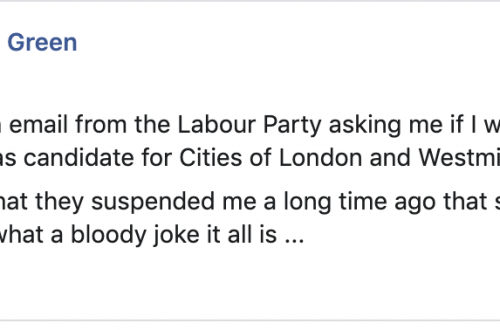Hungary’s presidency of the EU means it has come in for extra scrutiny recently, and alarms have recently been expressed over its proposed new constitution, due to be ratified on 18 April.
The constitution has been strongly opposed by those campaigning for homosexual equality, as it seems to rule out the possibility of gay marriage, emphasising instead the fact that marriage is a union between a man and a woman. Perhaps still more significant is the fact it doesn’t include a commitment to ban discrimination on the basis of sexual orientation:
Regarding discrimination, the draft prohibits distinctions made on grounds of “birth» or “race, colour, sex, disability, language, religion, political or other views, national or social origins, ownership of assets.” It does not include, however, discrimination on the basis of sexual orientation and on the fluid notion of “gender identity.
It also seems to put abortion legislation in jeopardy, with its emphasis on the rights of the foetus.
The attack on abortion rights in Hungary is not presented as such. In fact, it comes in the guise of a move to modernize the constitution that includes a provision that would protect human life from the moment of conception. The inclusion of such a clause could effectively do away with access to abortion, despite the fact that the majority of Hungarians support abortion rights.
Finally, commentators have been concerned by the possible implications of the constitution’s references to ethnic Hungarians who are not citizens of Hungary.
But the boldest attack came from MEP Baroness Sarah Ludford (ALDE; UK), who challenged the draft constitution on a range of issues.
Ludford said that as a liberal she saw that “this is not a liberal constitution”. She voiced concern over what she called “irredentist” and “very dangerous” claims in the draft constitution to protect Hungarians abroad.
Another proposed measure which has been mooted, though it is not included in the constitution itself, is the curious possibility that parents of minor children might be given extra voting powers. Hungarians were invited to answer the following question in a survey carried out by the Government.
4. Should the new constitution grant voting rights to the parent of a minor on behalf of his/her child? (The National Consultation Board wants to launch a public debate on whether parents should be given an extra vote in the name of their children, and if each child in the family should bring one extra vote or if just one additional vote should be given to the family, regardless of how many children it has.
Meanwhile, although support for Jobbik seems to be on the wane, the Roma are still facing a campaign of intimidation in some parts of the country.


